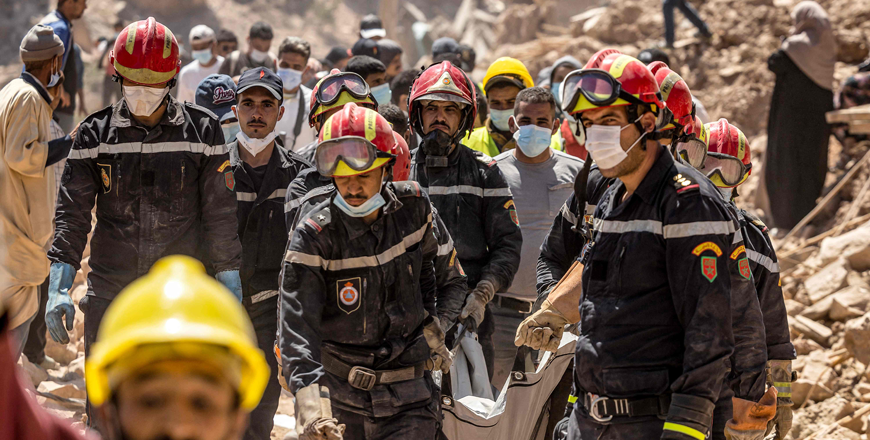INEGHEDE, Morocco — Rescue teams stepped up a massive effort to bring relief to devastated Moroccan mountain villages Wednesday as the chances faded fast for finding survivors from the powerful earthquake which killed 2,900 people and left hundreds of thousands homeless.
Vehicles packed with supplies were inching up winding mountain roads to deliver desperately needed food and tents to survivors of the nation's deadliest quake in more than six decades.
Search teams were in places still scouring the rubble for the living. Morocco is now well past the 72-hour window when rescues are considered most likely, yet survivors are in some cases found well beyond that period.
"We're working in a lot of places," said Fahas Abdullah Al Dosanri of the Qatari fire department, part of the international aid effort, adding some villages still cannot be reached by road.
Moroccan authorities reported that crews were working clear unpaved tracks that have been cut off by landslides.
In the hardest-hit areas south of Marrakesh many villages in the High Atlas mountains were completely destroyed and villagers were taking shelter in yellow government-issued tents.
"The only thing that remains of those villages is their name," Fatima Benhamoud, 39, said near a distribution centre for the temporary shelters.
Her family was living in one of the tents in a park in Amizmiz, which has become an aid hub for the mountain villages, because their home was no longer safe.
The shelters' arrival are an indication that aid is starting to flow but they are intended to be only temporary and will be totally insufficient against the approaching cold and rainy season.
Hard-hit mountain villages
Morocco is deep in mourning for its dead, with the most recent toll on Tuesday recording at least 2,901 killed and 5,530 injured in the 6.8 magnitude quake that struck late Friday when many were at home.
In the tourist hub of Marrakesh, whose UNESCO-listed historic centre suffered cracks and other damage, many families still slept out in the open, huddled in blankets on public squares for fear of aftershocks.
But the need was most desperate in remote and poor mountain villages, where traditional adobe homes crumbled to rubble and dust.
King Mohammed VI paid a visit to victims of the earthquake on Tuesday at Marrakesh University Hospital where the official MAP news agency said he “inquired about the state of health of the injured” before giving blood.
Many Moroccan citizens have rushed to help quake victims with food, water, blankets and other aid or by donating blood to help treat the injured, an effort joined by the national football team.
The challenge of rebuilding
Morocco has allowed rescue teams to come to its aid from Spain, Britain, Qatar and the United Arab Emirates but so far declined offers from several other nations, including the United States and Israel.
The quake was Morocco’s strongest on record and the deadliest to hit the country since a 1960 earthquake destroyed Agadir on the Atlantic coast, killing between 12,000 and 15,000 people.
The United Nations estimated that more than 300,000 people have been affected, one third of them children.
The rebuilding effort is expected to be enormous for the North African country which was already suffering economic woes and years of drought and now fears a downturn in the crucial tourism sector.
